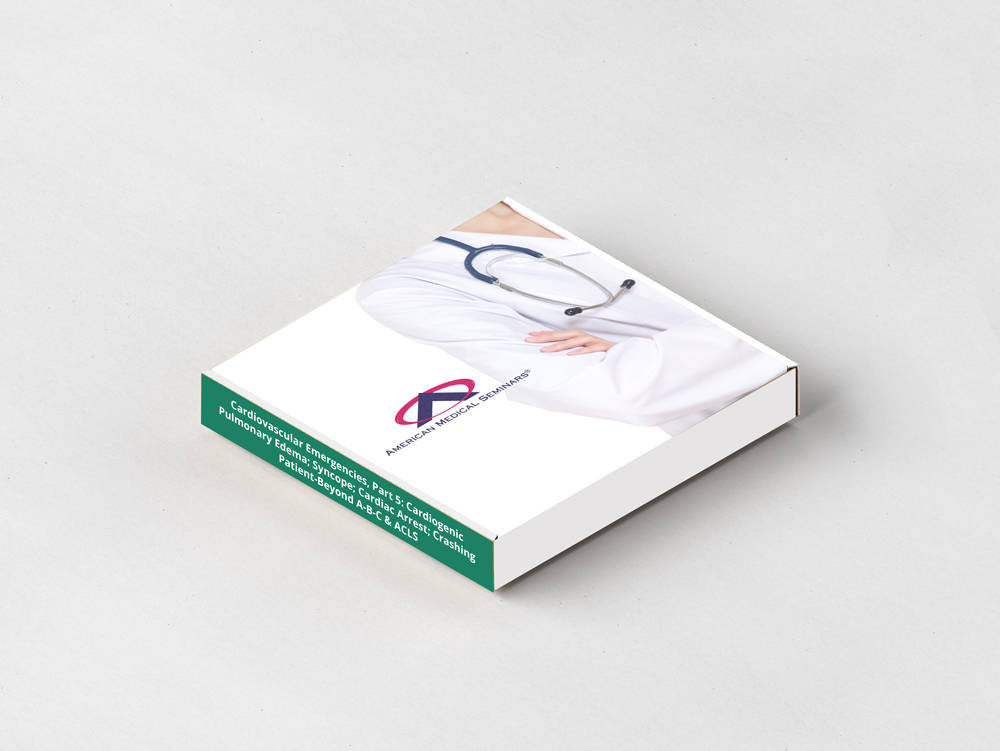Product Description
Title: Cardiovascular Emergencies, Part 5: Cardiogenic Pulmonary Edema; Syncope; Cardiac Arrest; Crashing Patient-Beyond A-B-C & ACLS
Faculty: Amal Mattu, M.D., F.A.A.E.M., F.A.C.E.P.
Original Release Date: April 1, 2019 Expiration Date: July 1, 2021
TOPIC 1: Winning at Failure: Optimal Management of Cardiogenic Pulmonary Edema.
Upon completion of this session, the participant should be able to: COMP
- Describe the limitations of morphine and furosemide in the management of cardiogenic pulmonary edema.
- Identify medications available for rapid preload reduction and afterload reduction.
- Discuss the use of noninvasive positive pressure ventilation.
TOPIC 2: Syncope: Simplifying a High-Risk Condition.
Upon completion of this session, the participant should be able to: COMP
- List the high-risk features in the history and physical examination that predict poor short-term outcomes.
- Describe a cost effective workup for patients presenting after syncope.
- Distinguish between syncope and seizures.
TOPIC 3: Cooling the Fire: Modern Management of Cardiac Arrest.
Upon completion of this session, the participant should be able to: GL, COMP
- List newest updates in Basic Life Support guidelines.
- List the newest recommendations in Advanced Life Support guidelines.
- Describe current and future trends in the management of cardiac arrest and post-arrest care.
TOPIC 4: 10 Things You Must Consider in the Crashing Patient: Beyond A-B-C and ACLS.
Upon completion of this session, the participant should be able to: GL, COMP
- Describe some pitfalls associated with commonly-used resuscitation techniques.
- Identify how basic bedside ultrasonography can help in the diagnosis and treatment of “crashing” patients.
Discuss some of the new concepts in the recent AHA guidelines that can help…and hinder the chance of survival in “crashing” patients.
- The receipt for any incentive-associated purchase will designate the value of the gift card separately from the cost of the learning activity.
- This incentive may have implications on your tax reporting obligations. Any reimbursed amount must be declared as personal income for tax purposes.


